Keywords: Malcolm Turnbull
There are more than 200 results, only the first 200 are displayed here.
-
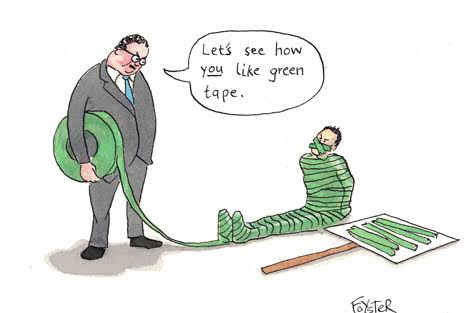
ENVIRONMENT
- Greg Foyster
- 01 July 2016
13 Comments
By the time polls close Saturday, tens of thousands of voters in marginal seats will have received 'election scorecards' from environment groups. Almost all will rate the Liberal Party worse than Labor or the Greens on a range of issues, from protecting the Great Barrier Reef to encouraging investment in clean energy. Privately, some Liberal candidates will be seething - and, if the Coalition wins, they'll have the means for brutal revenge.
READ MORE 
-
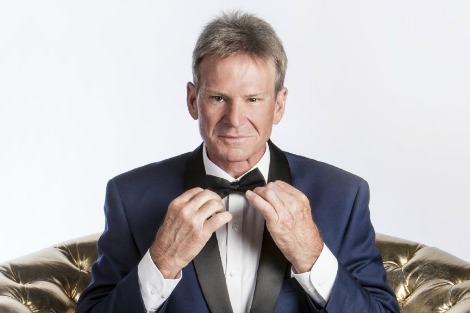
AUSTRALIA
- Jeff Sparrow
- 30 June 2016
8 Comments
Last week Sam Newman said he'd been approached to run for mayor in Melbourne on a 'Donald Trump-like anti-political correctness platform'. The announcement raised an interesting question: where's the Trump, or Sanders for that matter, in the Australian election? Richard Di Natale has articulated a vision of the Greens as 'the natural home of progressive mainstream Australian voters', yet we might equally say that he embraced politics-as-usual just as politics-as-unusual began to manifest everywhere.
READ MORE 
-
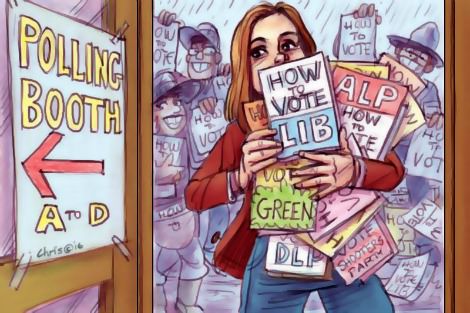
AUSTRALIA
- Neve Mahoney
- 29 June 2016
18 Comments
Honestly, I could talk all day about how growing up with Rudd/Gillard/Rudd followed by Abbott/Turnbull turned a generation away from politics. I could talk even longer about how seeing (mostly) white, (mostly) male politicians is its own form of alienation. But if I'm going to be the possible swing vote, the homogenous 'youth vote', I'm going to make it count. I know that I can't afford to disconnect; if for nothing else, I need to vote for the people who can't.
READ MORE 
-
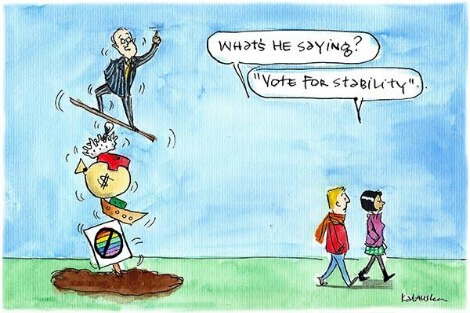
CARTOON
- Fiona Katauskas
- 29 June 2016
1 Comment
This week's offering from Eureka Street's award winning political cartoonist.
READ MORE 
-
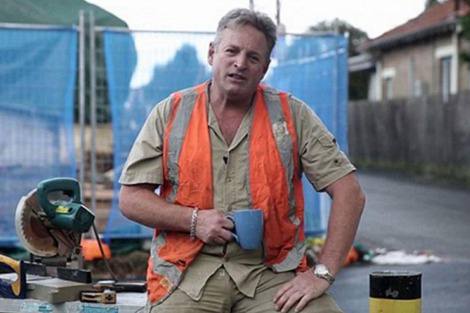
AUSTRALIA
- Brendan Byrne
- 27 June 2016
15 Comments
Whether or not the person in the now notorious 'fake tradie' ad is or isn't a 'real' tradie is irrelevant. What is relevant is that it is a primary example of the co-option of the language of class struggle and economic justice that has so thoroughly poisoned economic debate in the industrialised West. Implicit within it is a patronising view of the working class that dismisses them as gullible dupes who can be made to entrench the privilege of the few in return for the paltry crumbs of consumer hedonism.
READ MORE 
-

AUSTRALIA
- Tim Woodruff
- 24 June 2016
6 Comments
My patients who earn $36,000 a year pay $36 for most prescriptions. My patients who earn $360,000 pay the same, and those on $3 billion pay the same. Usually, these prescriptions are for conditions which can't be avoided - it's just bad luck. This government imposed co-payment is a tax on illness. It is not noticed by those on $360,000 but for those struggling on $36,000, it does affect their small disposable incomes. It is a regressive tax, and its effect on patient behaviour is well documented.
READ MORE 
-

AUSTRALIA
- Catherine Marshall
- 24 June 2016
5 Comments
Facing his first election as leader of the Coalition, Turnbull announced that, if reelected, his party would spend $54 million on continuous glucose monitors for up to 4000 Type 1 diabetics under the age of 21. This impressive promise was a lightning rod to the children and small number of adults diagnosed each year with Type 1 diabetes. But it comes too late for Donna Meads-Barlow, who has campaigned tirelessly for government funding for CGMs, and upon whose efforts the government has finally taken action.
READ MORE 
-
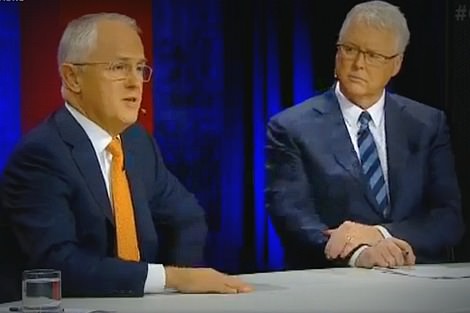
INTERNATIONAL
- Samuel Dariol
- 23 June 2016
15 Comments
It is one thing to sit at a desk and make policies that will impact on individuals across the sea whom you do not know. It is another thing to cross the sea, to look into the eyes of people abandoned there, to meet the children and see the pictures they have drawn, and to see in their eyes terror, despair, depression and contempt. For a prime minister to go to Manus Island would require him to throw off the shroud and stare affrighted at the maggots in the flesh of the body politic.
READ MORE 
-
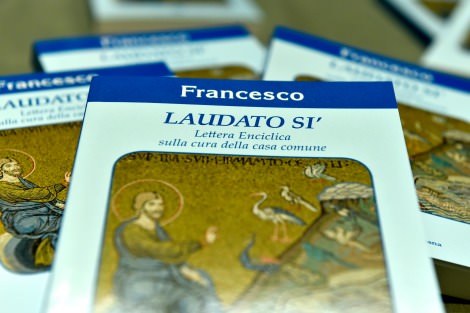
ENVIRONMENT
- Neil Ormerod
- 22 June 2016
23 Comments
It is now 12 months since Pope Francis issued his environmental encyclical Laudato Si'. He opined, 'Although the post-industrial period may well be remembered as one of the most irresponsible in history, nonetheless there is reason to hope that humanity at the dawn of the 21st century will be remembered for having generously shouldered its grave responsibilities.' Where are the Australian politicians who can give hope to the coming generation by focusing our attention on this most urgent issue?
READ MORE 
-
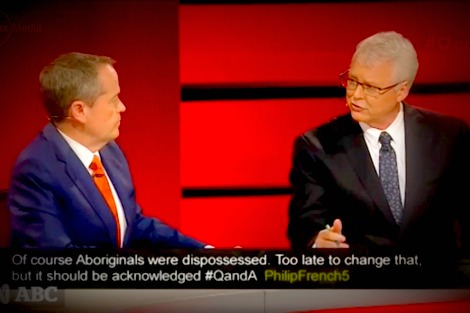
AUSTRALIA
- Celeste Liddle
- 22 June 2016
8 Comments
For the first time ever, I got the sense that political views on the importance of Indigenous issues had shifted. It was not due to an increase in Indigenous voices in the political discussions nor was it because either of the major parties announced a policy which I found remotely inspiring. Rather it was because, under the glare of the camera, the leaders of the two major parties both attempted to show a greater understanding of the Indigenous political agenda than they have before.
READ MORE 
-
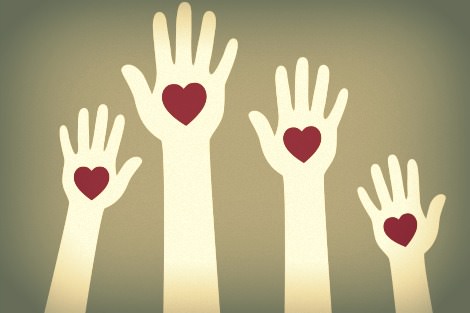
AUSTRALIA
- Frank Brennan
- 10 June 2016
46 Comments
Sadly, the major political parties have forfeited any claim to govern in their own right because they have caused such disillusionment among so many voters about other policy issues with strong moral overtones. Any voter impressed with Pope Francis' encyclical Laudato Si' or inspired by his visits to asylum seekers on the islands of Lampedusa and Lesbos could not blithely vote for either of the major parties, without first determining how to place some continuing political and moral pressure on them.
READ MORE 
-
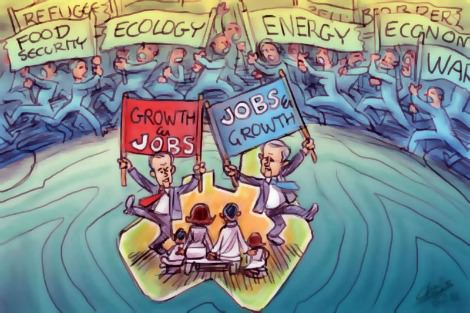
AUSTRALIA
Living within the United Nations community I've witnessed Australia fall from a well-respected international citizen, to becoming the spoilt, sneaky brat of international relations. Even the most blasé glance at the geo political currents moving through the planet reveal complexities this election pretends don't exist. Australians fighting about jobs and growth in the corner comes across as deeply deluded isolationism. The Great Barrier Reef is dying. The world is watching. Hello Australia? Anybody home?
READ MORE 